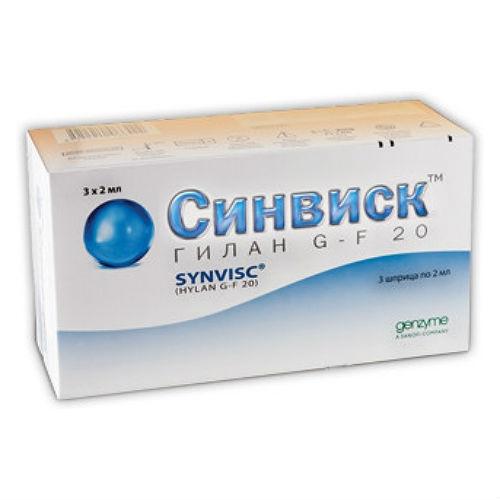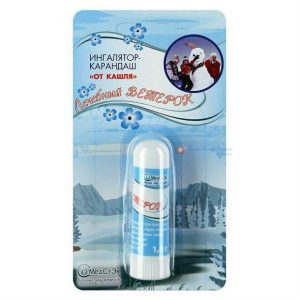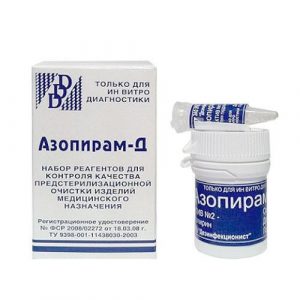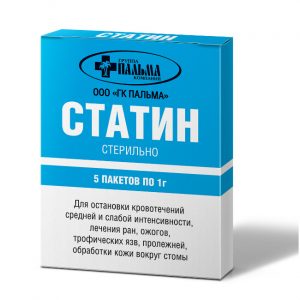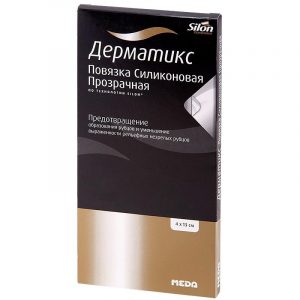Description
Release form
Synovial fluid prosthesis
Packaging
3 syringes in 2 ml.
Pharmacological action of
Synvisc is a biological analogue of hyaluronan. Hyaluronan is a component of the synovial fluid, causing its viscoelastic properties. The mechanical (viscoelastic) properties of Synvisc, however, are higher than those of synovial fluid and a solution of hyaluronan in comparable concentrations. Synvisc has elasticity (coefficient GÑ) 111 ± 13 Pascal (Ra) and viscosity (coefficient G () 25 ± 2 Ra, measured at a frequency of 2.5 Hz. The elasticity and viscosity of a person s synovial fluid aged 18-27 years, measured by the same method and at the same frequency, are respectively GÑ = 117 ± 13 Ra and GÑÑ = 45 ± 8 Ra. Gilan is excreted from the body in the same way as hyaluronan, and its decay products are not toxic.
The therapeutic effect of Synvisc is associated with ‘replenishment of viscosity’, whereby the physiological and rheological status of the tissues of the affected joint is improved. The replenishment of viscosity with the introduction of Synvisc leads to a decrease in pain and discomfort with a subsequent improvement in the function of the affected joint. In vitro studies have shown that Synvisc protects articular cartilage from mechanical and chemical damage.
Indications
is intended for the temporary replacement and replacement of synovial fluid.
is indicated for patients with osteoarthritis of the knee at any stage of the course.
is most effective in treating patients who lead an active lifestyle and regularly load the affected joint.
is intended only for intra-articular administration for the treatment of pain caused by osteoarthritis of the knee joint.
Contraindications
Venous or lymphatic stasis on the affected joint side.
An infected or severely inflamed joint, signs of a skin infection in the immediate vicinity of the injection site.
Hypersensitivity (allergy) to preparations of hyaluronan (sodium hyaluronan).
Pregnancy, lactation period
Special instructions
Do not enter Synvisc if there is significant intraarticular effusion.
As after any other invasive joint procedure, after the injection of Synvisc, the patient is advised to adhere to a sparing regimen and avoid unnecessary stress on the joint for several days.
Sinvisk contains a small amount of chicken protein, therefore caution should be exercised in the treatment of patients with appropriate hypersensitivity.
Effectiveness of a course of treatment containing less than three injections, not installed.
Efficiency and safety Synvisk when used on joints other than the knee and for other indications other than osteoarthritis has not been established.
Sinvisk was not used to treat pregnant women and children under 18 years of age.
During the course of treatment, Synvisc is not allowed to inject anesthetics or other pharmacological agents into the cavity of the affected joint.
Composition
1 ml contains:
Active ingredient: naphazoline nitrate 1 mg
Excipients: ethylenediamine, boric acid, cetyl alcohol, methyl paraben, eucalyptus oil, polysorbate 80, cholesterol, liquid paraffin druffpfrpf15 :
Active substances: Gilan 8.0 mg sodium chloride 8.5 mg sodium hydrogen phosphate 0.16 mg sodium dihydrogen phosphate hydrate 0.04 mg water for injection.
Dosage and administration
Sinvisk injections should be carried out exclusively in medical institutions officially certified for performing intra-articular injections by certified and certified doctors of the appropriate profile and strictly on the basis of this instruction.
The recommended course of treatment with Synvisc includes three injections into the cavity of the knee joint with an interval of 1 week. To achieve maximum effect, you must perform all three injections. The maximum recommended dose is six injections over six months with an interval between courses of at least 4 weeks. The duration of the effect in patients responding to treatment is usually at least twenty-six weeks, but most often these periods are longer. Sinvisk treatment affects only the affected joint into which the drug is injected does not cause a systemic effect.
Side effects
After injection, Synvisc may experience short-term pain, swelling in the injection area and / or the appearance of intraarticular exudation. In some cases, exudation can be significant and cause a longer pain syndrome. In these cases, it is necessary to puncture the joint and remove the exudate with its subsequent microscopy in order to exclude infection and microcrystalline arthropathy (gout). Typically, such reactions pass without a trace within a few days and do not affect the effectiveness of treatment.
During clinical trials of the drug, not a single case of infection was noted after injection of Sinvisk, and with clinical use only a few such cases were reported.
Drug Interactions
Disinfectants containing quaternary ammonium salts should not be used before skin treatment.
Storage Conditions
Store at 2 ° C to 30 ° C. Do not freeze.
Deystvuyuschee substances
Hylan (Hylan GF 20)
pharmacy terms for
Form of Treatment
simply entails dlya inaektsiy
